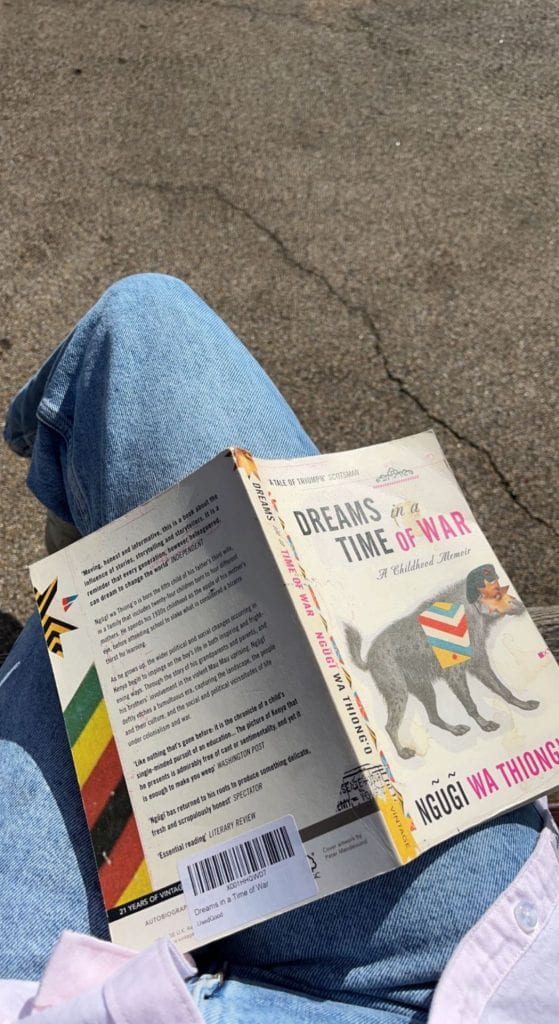Gratitude in Grassy Fields
Hope Fowler
About a ten-minute walk from where I live in London there is a small park. It is home to a basketball court, some benches, and a field, and it is sandwiched between busy streets and bus stops. For the past two months, this park has been rather empty, walked through yet not a destination, as people made their way back to the heat and warmth of the indoors. Yet as it gets warmer, this small park has been greeted with more and more visitors, hoping to use its empty fields and previously lonely benches to soak up the sun.

On Wednesday, I visited this park in order to read my book for class. I sat on one of the benches, passing by others that were occupied by friends and families. And when I sat down, I took a moment to look at just how different the park was in the spring. Flowers bloomed on the once barren field and friends sat, enjoying picnics and company. Dogs and their owners walked or ran by me, strolling or chasing after balls that had been thrown. And even as I looked down and opened my book, the sound of chatter and basketballs and scooters still echoed the life that had emerged from the park.
I found myself, in this moment, incredibly grateful to be living here in London, where I can walk down the street, grabbing coffee along the way and find a beautiful place to sit.
In Ngũgĩ wa Thiong’o’s Dreams in a Time of War, one of the main themes is the importance of education and dreaming even through difficult times. Even while suffering through a colonial war that brought about civil war in his family, Ngũgĩ still worked hard in his classes and eventually achieved what many others could not. I was reading about what he went through and understanding that his story was one of the few successes in the middle of a happy, bustling park.
One thing that I took away from this book is the importance of both hope and gratitude. Ngũgĩ had to live through a horrible war that oppressed his entire tribe, and yet he still found hope through his education.
As students walked by me complaining about having to wake up early for class, Ngũgĩ was walking six miles just for the opportunity to go to class and did not complain at all. The importance of not taking things for granted as well as being grateful for what you do have was so evident as I sat there, reading, and listening. I hadn’t gone to the park in order to consider how Ngũgĩ’s lessons may have impacted the world I was in, but I did find that this was the outcome.





